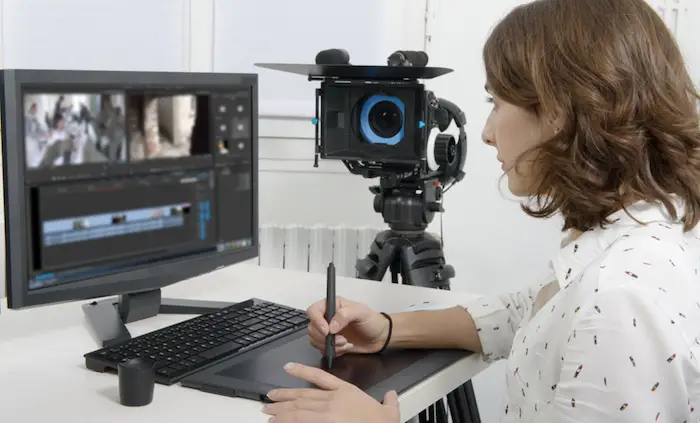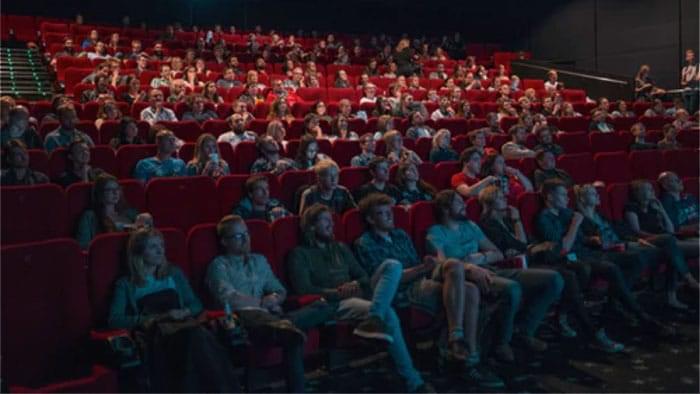
You’ve poured in your heart and soul, invested your own cash and maybe the cash of others, taken time away from endeavours that could have been generating an income and may have alienated family and friends by missing out on stuff. The whole production has likely taken vastly longer than you ever expected. Congratulations, you’re a filmmaker! And maybe now you finally have a product you feel is ready to share with an audience?
But where are all these eager viewers? Why are they not in line on the street outside awaiting the premiere?

1. Get Promotion Started Early
Ah, promotion. When you finally feel like the real slog of generating a creative masterpiece is coming to an end, you realise a whole new gut wrenching, agonising, painstaking slog is about to begin. Now you have a film you need to convince people that it’s worthy of their time and attention.
With any luck, you’re reading this a year or several years before your film is actually ready, because ideally promotion groundwork needs to begin long before the film is complete. Building a buzz about you and your project in advance of its release will make a big difference to viewer numbers.
Promotion is hard work, there’s no getting away from it. But it can be fun too. And as a creative person, with a creative problem-solving mind, you already have many of the tools you need.
2. Take the Lead on Promotion – Make a Plan
Obviously the dream for anyone is to air your film at a festival and then just have to deal with the bidding war as top distributors fight over your genius. If you can get your production aired at a film festival, this route is worth a try, but maybe don’t let it be your only option. A tiny minority of filmmakers will realize their dreams this way.
Similarly unlikely is selling your film directly to a distributor or streaming platform. That’s not to say you should never try, but be realistic. Grabbing the attention of these guys in a hugely crowded marketplace takes contacts, experience, luck, exceptional timing and bucketloads of skill. If you achieve either of the above routes, sit back and relax (well kind of), you’ll have marketing powerhouses to lead promotion of your film.
A more likely reality is that if anyone beyond your mum, long suffering partner, a few loyal school friends and perhaps lonely Mrs Jones down the street, is to ever see your film, you’re going to have to make it happen. The earlier you begin making a plan for promotion, the more effective it will be. What should your promotion plan include?

3. Start with the Basics – Social Media
You have more connections than you think and in today’s world you have the ability to make hundreds, thousands, even millions of connections online. Ensure you’re using social platforms to their best advantage. Choose a few channels and get some profiles set up and running to promote your film making activities. You can (and ideally will) do this long before the film is ready. It’s a way to let your existing contacts, friends and family know what you’re up to and join related communities.
Obviously you don’t want to give away any secrets about your film, but you can get involved in related discussions, seek out people who may be interested in the genre and topics you’re dealing with, find other friendly filmmakers to share the highs and lows with. From filming equipment and gadget insurance to lighting and edits, they’ll get what you’re going through and be useful people to know anyway, outside of the added benefit of assisting with promotion.
Try to avoid being on the continual self promotion train. Share things that will be useful, interesting and engaging to others and they’ll become interested in and supportive of you and what you have to say.
Once your film is ready, consider what enticing tidbits and added value content you can share, such as behind the scenes video, off-cuts or bloopers.
4. Launch a Website
Creating, updating and curating a website is something to be done consistently over time but can lead to huge reward. A website is a central place to promote yourself and your work, write blogs, share videos and give more to people who are really interested in your project. If you’ve grown a decent social media presence and some website engagement before your film is ready you’ll be ahead of the curve. It’s also a place where people can find you and your work once they start hearing your name or the name of your film.

5. Know Your Audience
It’s worth assessing exactly who is likely to be interested in it and ensuring you focus your promotion efforts on them.
Don’t assume your groundbreaking sci-fi is so good that it’ll attract even those viewers and distributors who usually only deal in rom coms. Start with the people most likely to be curious about your work and focus your efforts there first. If it really is a game changer, the news will spread outwards.
Find the online communities where people interested in your genre of film are likely to be, research the appropriate publications and contacts and provide them with what they need.
6. Ensure Your Trailer, Synopsis and Press Pack Are All Spot On
You’ll need to create a pack of shareable resources to send to the people you want to hear about your film. You need a snappy, exciting and informative synopsis that grabs attention. People are busy and often overwhelmed so you need to spark their interest fast and ensure once you have it, the movie you’ve told them about is a good representation of the one you’ve actually produced. Publications may want written content and still photographs.
For social media you’ll want an excellent trailer that encourages people to view to the end and share. Research similar films and refer to films that have a similar feel and have attracted audiences that may also appreciate your work.
7. Invest If You Can
As well as earned promotion via press releases, social shares and gaining the interest of a professional agent or distributor, you can also consider paying for promotion. Well placed – and well-timed – social media advertising can be extremely effective, for example.
Investing in some printed promotional materials to spread the word about a local showing of your film may be wise, especially if you can offset the cost against ticket sales.
Remember, that whatever you put into promoting your film has long term benefits not just for this production but in raising your profile as a filmmaker and the profile of future films too.


